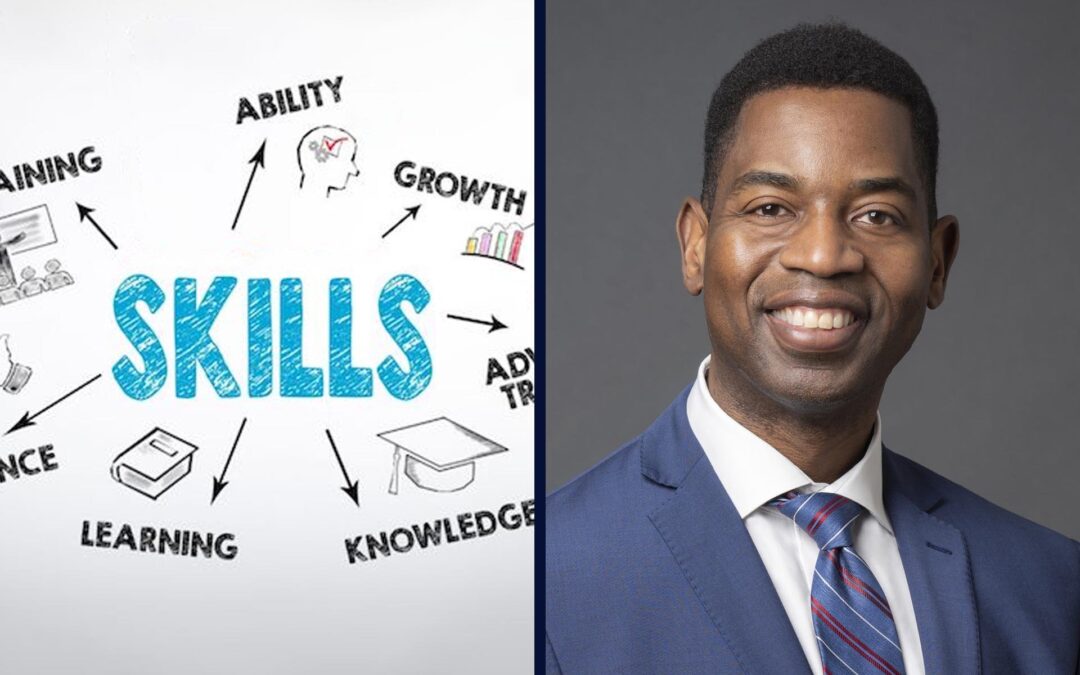By Gregory W. Fowler, PhD
Today’s rapidly evolving job market makes new demands of higher education, as learners turn to shorter, just-in-time learning experiences—flexible, stackable, and cost effective—to build skillsets explicitly tailored to their professional objectives. It is critical that lawmakers move to support and empower institutions that recognize and embrace this worldview, removing obstacles that impede efforts to recognize, standardize, and validate learning experiences that prioritize skills acquisition.
Gone are the days when skills-based learning was synonymous with vocational training or viewed as a reductive approach to learning. Today, rapid advances in technology demand flexibility, agility, and adaptability, and employers are increasingly likely to value practical over theoretical knowledge. Instead of automatically equating a traditional credential with competence or mastery, employers and learners alike are placing greater emphasis on an individual’s ability to demonstrate and acquire necessary skills.
Fundamental shifts are needed in postsecondary learning if we are to prepare a workforce capable of thriving in the 21st century, and institutions must be prepared to provide necessary knowledge and skills, assess and validate them, and communicate them in ways that are meaningful to both learners and prospective employers. This offers the new administration an opportunity to make an immediate and lasting economic impact across large and often underserved populations, including those who seek credit for prior learning; those with some college and no degree; displaced workers who are reentering the workforce, upskilling, or changing careers; learners in the military; and millions more.
These learners ask for and expect stackable certificates, certifications, or micro-credentials that can be evaluated and easily refreshed. They demand assurances that the skills they seek will have value in the future, and that they can be updated and augmented in response to emerging trends or technologies.
In response, my own institution—University of Maryland Global Campus (UMGC)—has embraced skills as the foundation of our learning experiences. This includes taking deliberate steps to identify and name the skills we teach in our core products and mapping those skills to career paths.
It also involves embracing a worldview that values learning no matter where it happens. We pride ourselves on being the nation’s most transfer-friendly institution, accepting credit from a wide variety of learning providers, and we evaluate and grant credit for prior learning, whether it is gained on the job or in military training or demonstrated via assessments.
This approach is one that we have identified and embraced as vital for the continued relevance of our institution and, indeed, of postsecondary learning, but it comes with challenges, and again, offers lawmakers the opportunity to support real and impactful change in the lives of learners everywhere.
Several steps can be taken to support the transition currently underway.
- First, skills-focused learning experiences are built around different measures of success, and the federal government can empower recognized accreditors to include standards that are applicable to skills-based programs. This could also encourage greater acceptance of short-form learning experiences, reducing the focus on credit and contact hours as the main criteria for federal financial aid eligibility.
- Equally important, by incentivizing and recognizing partnerships with industry leaders and employers, lawmakers can encourage the development of curricula that align with current and projected job market demands while supporting and rewarding those employers who invest in workforce and career development, thus contributing to an agile and competitive workforce. (Simply increasing the $5,250 cap on untaxed educational benefits—in place since 1986—would support such investment.)
- Finally, by voicing support for and spotlighting innovative teaching methods and learning environments that facilitate skills acquisition—such as project-based learning, internships, and collaboration with industry partners—lawmakers can underscore and promote the value of skills-based learning and accelerate its acceptance in mainstream learning and work environments.
In short, by recognizing, validating, and legitimizing skills acquisition as a central goal of education, the federal government can take crucial steps toward growing a workforce positioned to meet the demands of the modern economy. Similarly, by supporting postsecondary providers that embrace this approach, lawmakers can ensure that students are equipped with the skills they need to succeed in their careers and contribute to our nation’s prosperity. This shift will require cooperation among policymakers, educators, industry leaders, and third-party providers, and by supporting it, the new administration can affect lasting and impactful change that yields greater socioeconomic mobility and economic growth.


Recent Comments